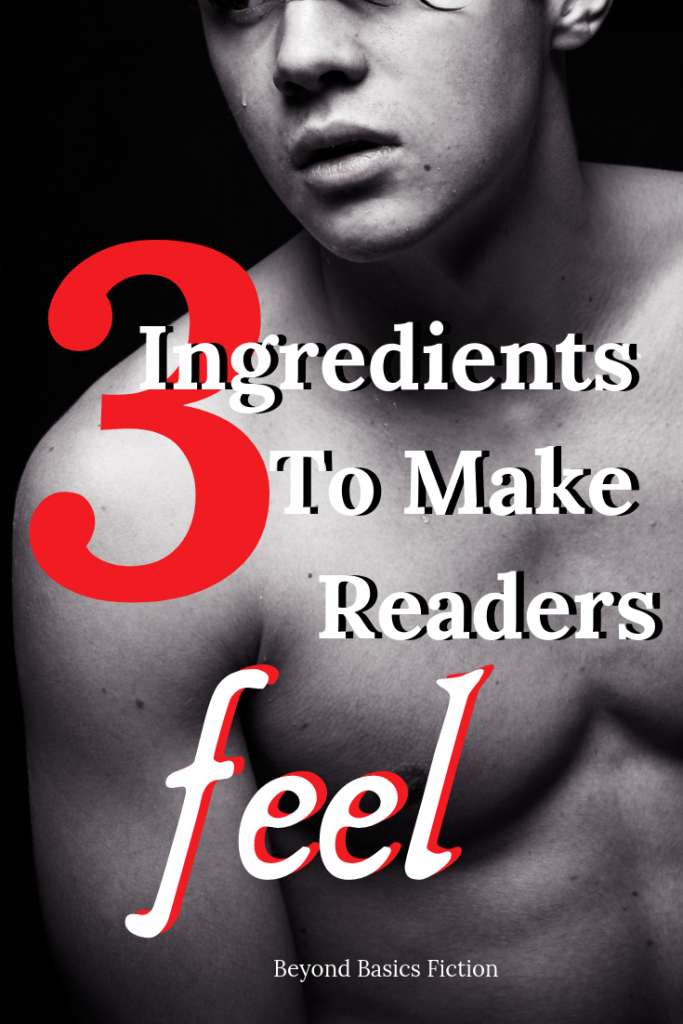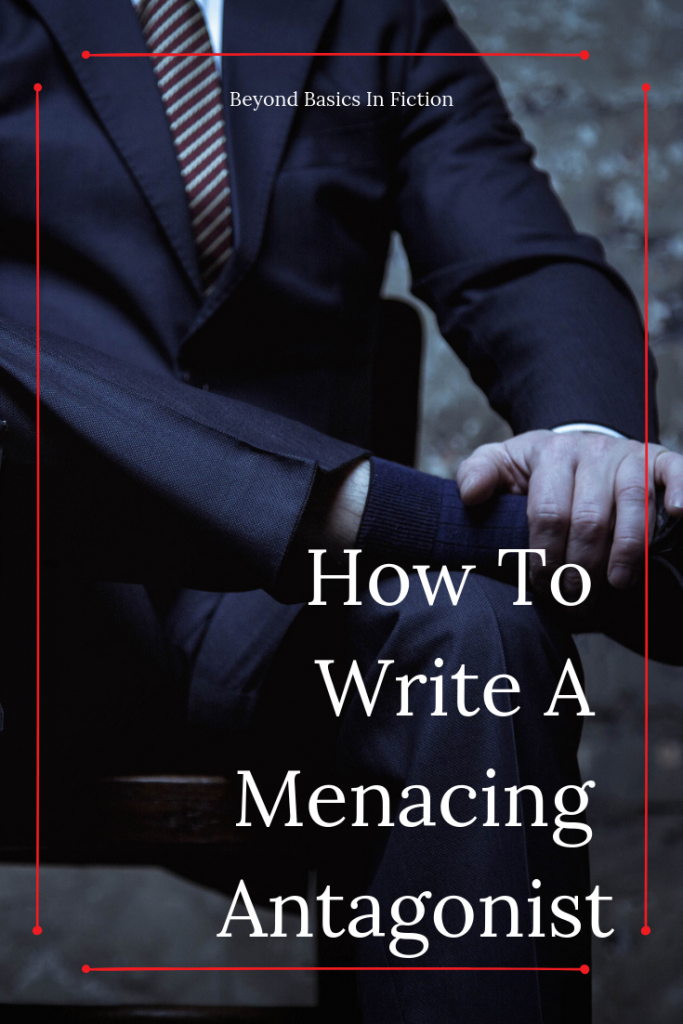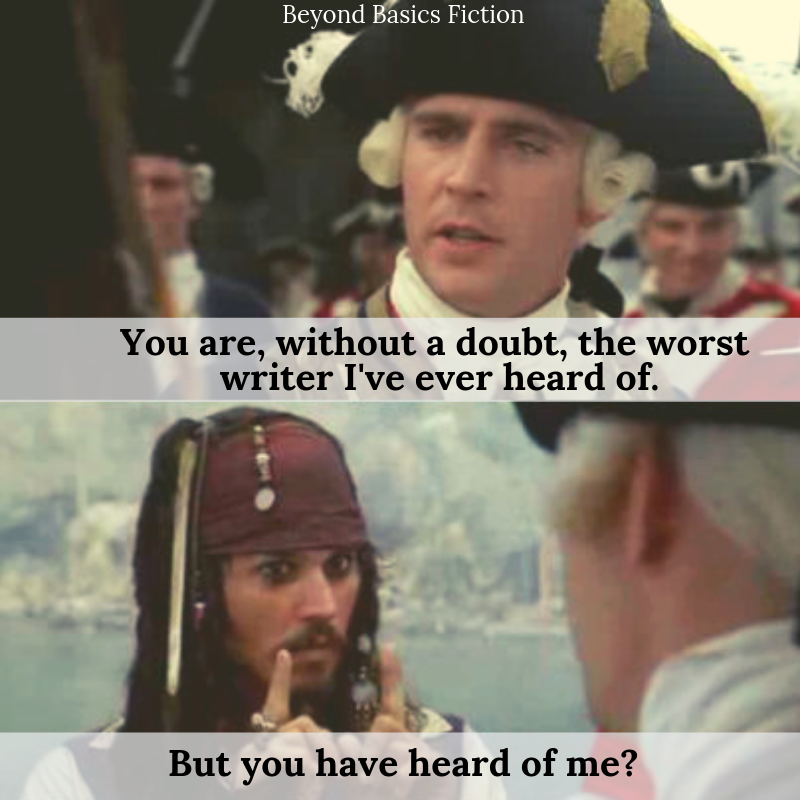
Captain Jack Sparrow, love him or hate him, most people FEEL something for the irrascible pirate. What can Jack Sparrow teach us about creating emotional connections with readers? Lots. Savvy?
There are many posts out there on the interwebz for writers looking for advice on how to create emotional connections with readers, but let’s look at a character many many people love but may not be able to put a finger on why.
Jack Sparrow Is Relateable
When creating a character you want readers to connect with, give them traits that your reader might share. It’s hard to put yourself into a story, into someone’s shoes if you can’t see yourself in any of their character traits or decisions.
Jack is selfish and deceptive and he appears morally bankrupt, so why do we love him? He literally stumbles through life. But we love Jack because we have a lot of things in common with him. No, really – we do.
He prefers to talk his way out of trouble instead of using brute force, even though he has the sword skills to do great injury. He’s intelligent and witty and uses those strengths to his advantage. Jack is immeasurably creative.
“Did everyone see that? Because I will not be doing that again.”
Jack Sparrow
Jack is OK with ambiguity. Today’s enemy could be tomorrow’s ally. He’ll steal your rum one day and shake your hand the next. Jack’s morality tends to be situational, but isn’t that also true of our own society where little white lies, no harm no foul, and other such sayings are held as truth. A person might never steal a chocolate bar or clothing from a retail store, but they’ll pirate movies or music or ebooks without thought. The character who always chooses the moral right, who’s never dishonest or corruptible in any way, is hard to relate to.

Jack’s An Ethical Pirate
Your character needs to stand for something. They have to draw a line in the sand — this far and no farther. That line will look different for every character and that line doesn’t have to be one that readers necessarily would choose for themselves, but it’s one they can cheer for. Readers connect emotionally with characters who have a code of ethics they won’t violate–an ethic the reader can cheer for.
Jack is a complicated character and whether he’s good or bad is often up for interpretation. Certainly, he’s no moral paragon, but unlike many other pirates Jack does his best to uphold the Pirate’s code. Jack isn’t a pacifist, but he often steps in and tries to de-escalate an impending conflict (often for self-interested reasons) by suggesting a negotiation. When he does draw his sword, it’s in self-defence.
“Why fight when you can negotiate?”
Jack Sparrow
Let’s not forget that the reason Jack was branded a pirate was because instead of delivering a shipment of slaves, he set them free. Jack, in the end, often chooses the morally right thing to do at his own personal sacrifice, even if he’s doing it for selfish reasons. He rescued his friends from the Kraaken (and the Pearl), he walked away from the fountain of youth, and he helped break the curse of the The Flying Dutchman to free Will Turner.
“Not all treasure is silver and gold, mate.”
Jack Sparrow

Jack Is Always The Underdog
Readers love to cheer on the come-from-behind-kid, the one who succeeds against all odds, the David in a David-and-Goliath story, the nerd fighting against the schoolyard bully. When a character faces overwhelming odds, when they choose to step into a hard thing when they could walk away, readers get behind that. They want the character to win. But let me clear, the odds need to be overwhelming and preferably the stakes are life and death. I don’t mean only literal life and death stakes, but identity-ending, career-suicide, life-is-no-longer-worth-living kind of stakes.
In every movie, Jack has a goal–there’s something he wants. His motivations aren’t always obvious or clear, sometimes even to himself, but he presses on even though the odds of him succeeding are fairly remote (hello – finding the fountain of youth??).
“I’m dishonest, and a dishonest man you can always trust to be dishonest. Honestly, it’s the honest ones you want to watch out for because you can never predict when they’re going to do something incredibly…stupid.”
Jack Sparrow
Jack Teaches Us Things
Readers want entertainment AND they want an emotional journey. They want to immerse themselves in a fictive dream and become a character, live vicariously through them, for a short period of time. Fiction helps challenge people’s thinking and offers new perspectives and paths for readers in a non-threatening way. It’s OK if you only want to entertain with your writing, but it’s OK if you want to use if for more than entertainment too.
“If you choose to lock your heart away, you’ll lose it for certain.”
Jack Sparrow
Jack is a character a lot of people wish they could be more like (in certain ways). Jack is comfortable in his own skin, in the expression of his personality, and doesn’t care too much what other people think of him. He doesn’t take offense easily and doesn’t hold a grudge. He lives in the moment
Jack very much lives in the moment. He doesn’t concern himself with a five year plan or even where he’ll sleep that night. Jack embodies freedom. “Wherever we want to go, we’ll go. That’s what a ship is, you know. It’s not just a keel and hull and deck and sails–that’s what a ship needs. But what a ship is–what the Black Pearl really is–is freedom.” Jack has simple wants: to be a pirate and to be captain of the Black Pearl. Most of us, in some way, long for that kind of free-spirited freedom, ability to laugh at ourselves, own our eccentricities and quirks, and care less what people think of us.

Jack Surprises Us
Writing that has readers leaning in, afraid to put the book down because they have to know what happens next — that’s the goal, right? That’s my goal. The surprises have to be true to the character and the storyworld, often the surprise causes the main character even more trouble, but we cheer them on even harder.
Jack constantly surprises us. He’s funny. His wit and charm are disarming and the way he plays with the truth makes you feel like you’re inner circle sharing an inside joke. His antics, his flailings, his reliance on rum, it all adds up to entertainment and surprise. A joke isn’t funny if you already know the punchline, right. Sometimes his wit is full of great truth. Sometimes you have to repeat to yourself what he’s just said, and then it hits you — ooooh, that’s deep.
“You’ve stolen me and I’m here to take myself back.”
Jack Sparrow
“The problem is not the problem. The problem is your attitude about the problem. Understand me?”
Jack Sparrow
What do you love about Jack Sparrow? In what ways did you (or did you not) connect emotionally with Jack?
Been told you should learn Deep Point Of View? Had an editor or critique partner tell you to “go deeper” with the emotions in your fiction? Looking for a community of writers seeking to create emotional connections with readers? Check out the Free Resource Hub and then join the Going Deeper With Emotions In Fiction Facebook group.
I related to Jack Sparrow more than Ned Turner – -even if Orlando Bloom has charisma. Your assessment is spot on and gives me valuable pointers.
I’m trying to make my female detective likeable but not a shiny do-gooder. She has to have her thrills on her motorbike too…and a moral compass that Jack might relate to – and her informers.
You mean Will Turner? lol (I have a BIG Orlando Bloom fan in my house). It’s hard to relate to someone who’s perfect, just be sure and give her some redeemable traits or goal readers can cheer for and you’re on the right track!
I believe Jonny Depp has made the difference than Jack. with his persona he has become the progenitors for any future character like him. Without him this character may not connect all. Hope you consider the thought.
Great acting helps connect with the character, but unless he ad-libbed all the movies I’m convinced there was just plain good writing involved.
Hi Lisa,
Obviously most people can relate to the very cheeky Jack. If he doesn’t win your heart, you aren’t really watching are you?
Cheers Nathan…
Nathan Taylor recently posted…Which are the best Motorcycle Airbag Vests or Jackets in 2019?
Each of these characteristics would make for a very good and relatable character. I think that what makes a great character is that they are real, to both the reader and the writer. For the character to be real, you must spend an adequate amount of time with them, if only in your mind. You would certainly spend more time with them if you are trying to achieve some or all of the things you mention here. So, by themselves these points are important, and cumulatively they are even moreso useful!
Great thoughts and great article!
Thanks,
Wayne Walls
Wayne W Walls recently posted…Best Educational Podcasts on Spotify
Glad you found these tips helpful! Keep writing!